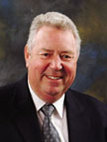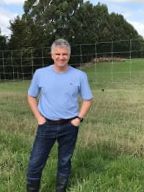About Us
During the last twenty years Beckhithe Farms have established themselves as one of the country’s largest and most highly regarded beef producers.
Beckhithe have a herd of 3200 cattle (1200 cows) utilising 1300 hectares (3212 acres) of grazing marshes. The beef production is part of a mixed farming system that includes 410 hectares (1015 acres) of arable cropping and 30 hectares (75 acres) of woodland.
It is not only the scale of the operation which sets them aside from other producers. Their meat is building a reputation for premium quality, reliability and consistency. They are farming some of the most environmentally sensitive marshland in the heart of the Broads National Park. The farm is located in an area designated a Ramsar site, making it one of the world’s most important wildlife wetlands.
Beckhithe Farms have adopted the recommendations from the report of the Policy Commission on the future of farming and food, which was chaired by Sir Donald Curry CBE in 2002.
Beckhithe have recognised the challenges brought about by the reform of the Common Agricultural Policy and adjustments have been made to their livestock enterprise to enable sustainability.
Each year Beckhithe Farms welcome many visitors, some from overseas, who are interested to see how successful farming can be combined with protection of rare bird and plant species and care for a sensitive wildlife habitat. In the past they have had visitors from Texas and New Zealand.
Beckhithe have a herd of 3200 cattle (1200 cows) utilising 1300 hectares (3212 acres) of grazing marshes. The beef production is part of a mixed farming system that includes 410 hectares (1015 acres) of arable cropping and 30 hectares (75 acres) of woodland.
It is not only the scale of the operation which sets them aside from other producers. Their meat is building a reputation for premium quality, reliability and consistency. They are farming some of the most environmentally sensitive marshland in the heart of the Broads National Park. The farm is located in an area designated a Ramsar site, making it one of the world’s most important wildlife wetlands.
Beckhithe Farms have adopted the recommendations from the report of the Policy Commission on the future of farming and food, which was chaired by Sir Donald Curry CBE in 2002.
Beckhithe have recognised the challenges brought about by the reform of the Common Agricultural Policy and adjustments have been made to their livestock enterprise to enable sustainability.
Each year Beckhithe Farms welcome many visitors, some from overseas, who are interested to see how successful farming can be combined with protection of rare bird and plant species and care for a sensitive wildlife habitat. In the past they have had visitors from Texas and New Zealand.

Managing director Barry Brooks has the advantage of more than 25 years’ experience in the meat processing industry.
He first purchased marshes in Halvergate in 1987. Hall Farm at Reedham and a large part of Halvergate and Reedham Marshes became available in 1997 and made an ideal purchase as they joined land that Barry had bought earlier. All holdings were later incorporated into Beckhithe Farms Ltd, a family company.
Barry sees farming as a partnership working openly with Government, environmental and wildlife organisations, agricultural suppliers, marketing agencies, food processors and retailers to achieve mutual objectives.
He first purchased marshes in Halvergate in 1987. Hall Farm at Reedham and a large part of Halvergate and Reedham Marshes became available in 1997 and made an ideal purchase as they joined land that Barry had bought earlier. All holdings were later incorporated into Beckhithe Farms Ltd, a family company.
Barry sees farming as a partnership working openly with Government, environmental and wildlife organisations, agricultural suppliers, marketing agencies, food processors and retailers to achieve mutual objectives.

The farm is managed by Gary Gray. Considerable time is taken up with detailed unit costings, projections and planning to optimise opportunities and ensure that the business is run commercially, essential with the tight margins associated with farming and most other commodities today.
